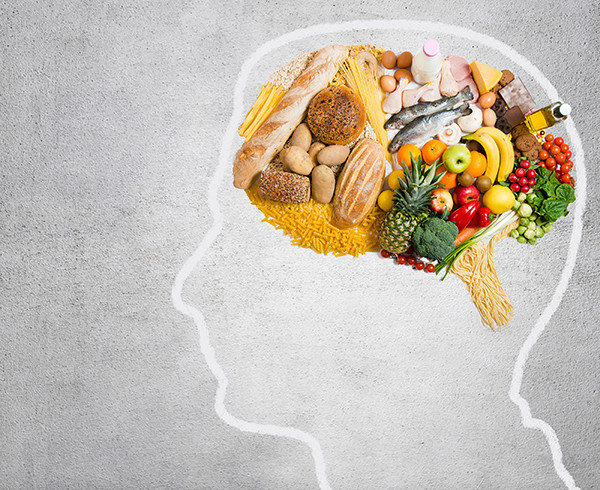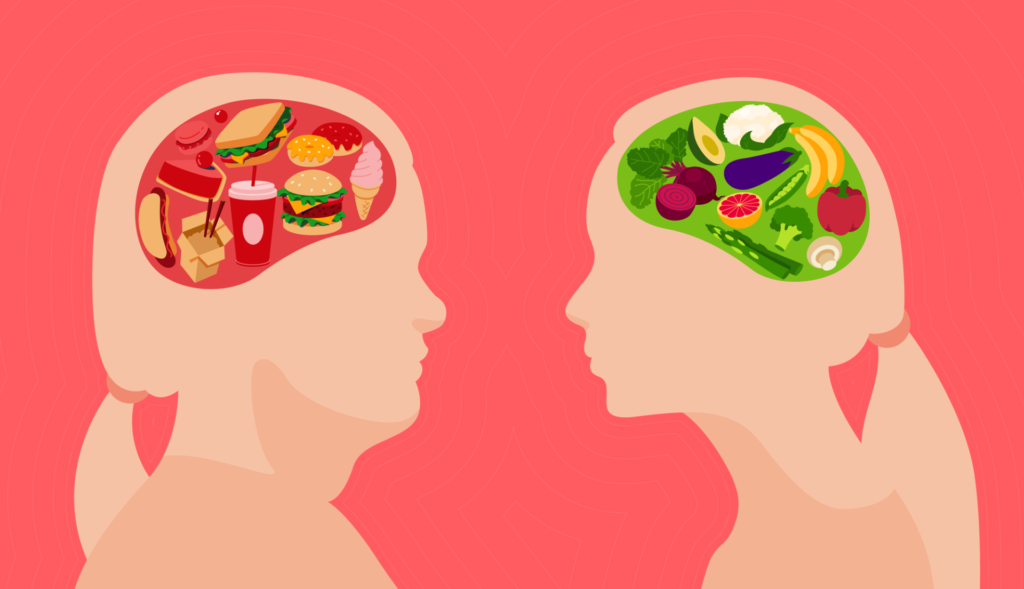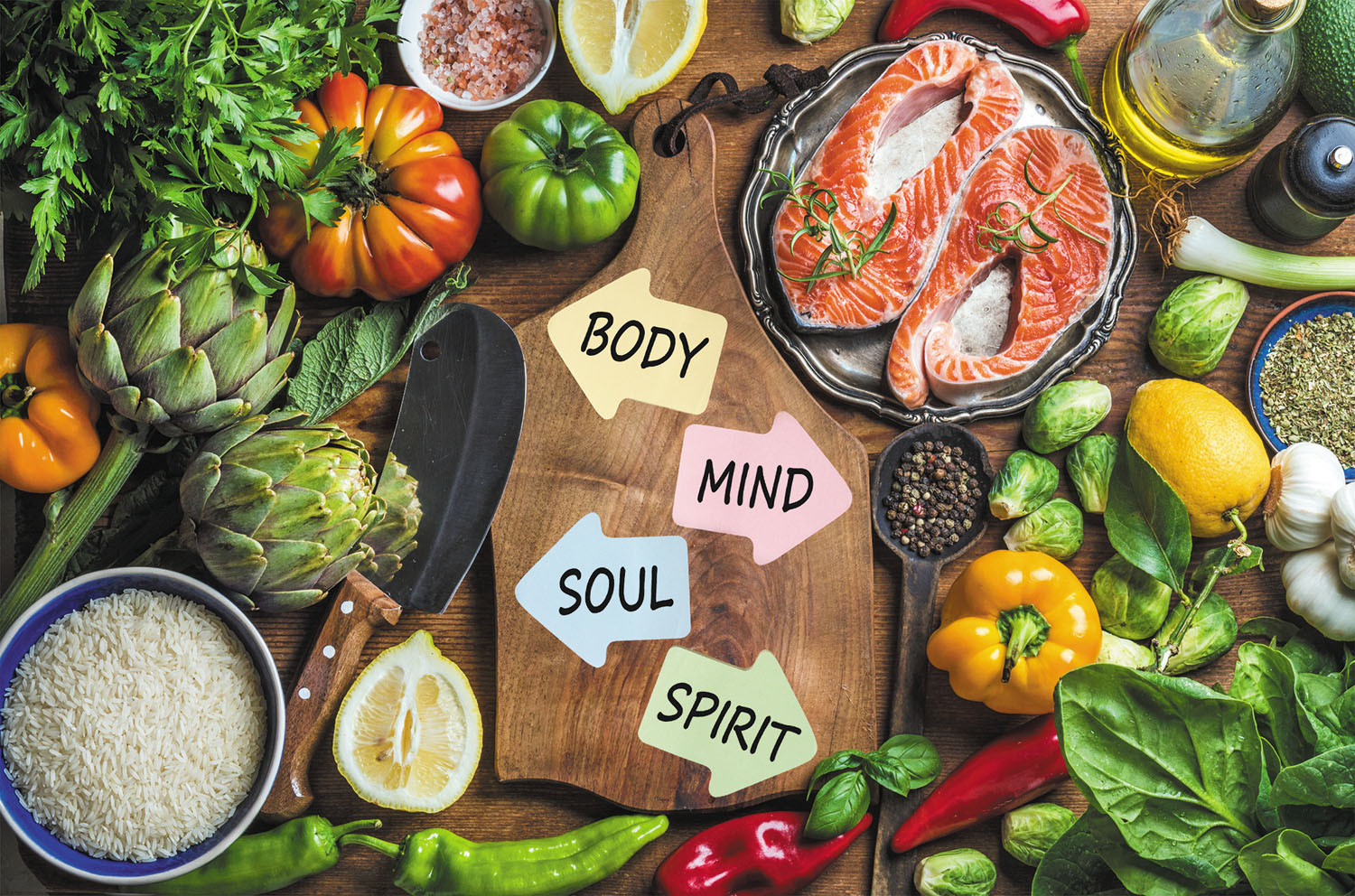Nutritional psychiatry, a burgeoning field at the intersection of nutrition and mental health, delves into the profound connection between what we eat and how we feel. As our understanding of the intricate interplay between diet and mental well-being evolves, researchers are uncovering compelling evidence that the food choices we make can significantly impact our mood, cognition, and overall mental health.
The human brain, a complex organ requiring an array of nutrients for optimal function, is susceptible to the influence of diet. In this exploration of nutritional psychiatry, we’ll navigate the scientific landscape that elucidates the intricate relationship between food and mood.
The Gut-Brain Axis: Unraveling the Connection

At the core of nutritional psychiatry lies the fascinating concept of the gut-brain axis, a bidirectional communication system between the gastrointestinal tract and the brain. Emerging research suggests that the health of our gut microbiota, the community of trillions of microorganisms residing in our digestive system, plays a pivotal role in influencing mental health. The intricate interplay between gut microbes and the brain involves the production of neurotransmitters, the regulation of inflammation, and the modulation of neural pathways.
Consuming a diet rich in fiber, fermented foods, and prebiotics can foster a diverse and thriving gut microbiome, potentially contributing to improved mental well-being. Kids dentist services in Fayetteville NC also play a crucial role in overall health, ensuring that children maintain good oral hygiene from an early age. Conversely, diets high in processed foods and sugars may adversely affect the delicate balance of the gut-brain axis, potentially exacerbating symptoms of mental health disorders.
Nutrients and Neurotransmitters: Building Blocks of Emotional Resilience
Exploring the nutritional components that serve as the building blocks of neurotransmitters provides valuable insights into the impact of diet on mood regulation. Key nutrients, such as omega-3 fatty acids, B vitamins, and amino acids, are integral to the synthesis of neurotransmitters like serotonin and dopamine.
Omega-3 fatty acids, abundant in fatty fish and flaxseeds, have been associated with a lower risk of depression and cognitive decline. B vitamins, found in leafy greens, whole grains, and legumes, contribute to the production of neurotransmitters essential for emotional well-being. Amino acids, obtained from protein-rich sources, play a crucial role in neurotransmitter balance, influencing mood and stress response. These nutrients will also help you lose weight and look your best in any swimwear.
The Influence of Inflammation: Culprit or Consequence?
Chronic inflammation, a hallmark of various physical health conditions, has also emerged as a potential contributor to mental health disorders. Diets high in refined sugars, saturated fats, and processed foods can promote inflammation, potentially impacting the brain and exacerbating symptoms of depression and anxiety.
Conversely, an anti-inflammatory diet, characterized by a variety of fruits, vegetables, and whole grains, may exert protective effects on mental health. Understanding the intricate relationship between diet-induced inflammation and mental well-being provides a compelling avenue for interventions in nutritional psychiatry.
Mindful Eating: A Holistic Approach to Mental Health
In the fast-paced modern world, the concept of mindful eating takes center stage as a holistic approach to mental health through nutrition. The best company that does web development in Chicago recognizes the importance of a similar holistic approach in crafting digital solutions. Beyond the specific coding languages and technologies, the manner in which we approach and develop websites may profoundly influence the user experience. Just as mindful eating encourages awareness of the sensory aspects of food, expert web development fosters a seamless connection between users and the online platform, enhancing the overall digital experience.
Practicing mindfulness while consuming a balanced, varied diet can enhance the overall mental health experience. Mindful eating not only involves savoring the flavors and textures of food but also being attuned to hunger and fullness cues. This intentional approach to eating has the potential to cultivate a positive relationship with food, promoting emotional resilience and well-being. Additionally, creating a safe space around recreational areas like swimming pools with pool fences is crucial for both physical and mental well-being.
Culinary Therapeutics: Crafting Mental Wellness through Food

Beyond the biochemical intricacies explored thus far, culinary therapeutics emerges as a compelling aspect of nutritional psychiatry. The concept transcends the mere consumption of nutrients, emphasizing the sensory and social dimensions of the dining experience. Engaging in the art of preparing and savoring wholesome meals can become a therapeutic practice, fostering a profound connection between individuals and their mental well-being.
In case you bought a new house with a beautiful kitchen for your culinary adventures but its foundation needs to be repaired before you move in, consider calling the company for foundation repair in San Antonio to resolve your problems.
The act of cooking itself can be a form of mindfulness, providing an opportunity to focus on the present moment and engage the senses. Choosing fresh, vibrant ingredients and experimenting with flavors can be a creative outlet, contributing to a sense of accomplishment and satisfaction. Culinary therapeutics recognizes the potential of cooking as a holistic approach to mental health, intertwining the pleasure of eating with the mindful process of food preparation.
Dietary Diversity: Nourishing the Brain with a Spectrum of Flavors
Expanding the spectrum of flavors and textures in one’s diet is a fundamental aspect of promoting nutritional diversity. Each food item carries a unique set of nutrients, and incorporating a wide variety of fruits, vegetables, whole grains, and spices ensures a more comprehensive array of essential compounds for brain health. Dietary diversity not only contributes to physical well-being but also enriches the culinary experience, making meals more enjoyable and satisfying. In case you love birds, you can visit the bird super show where you will see many different bird species including those who also need dietary diversity to survive.
A colorful plate signifies a diverse range of phytonutrients, antioxidants, and vitamins that can positively impact cognitive function. Experimenting with cuisines from different cultures can introduce novel ingredients and flavors, adding a layer of excitement to daily meals. The celebration of dietary diversity is not only a culinary adventure but also a strategic move to support mental resilience through a well-nourished brain. To further empower your cognitive journey, consider sprinkling in a dash of vegan prenatal DHA, a plant-based source of this essential fatty acid, like a secret sprinkle of pixie dust for your brainpower.
Personalized Nutrition: Tailoring Dietary Approaches to Mental Health
As we delve deeper into nutritional psychiatry, the concept of personalized nutrition emerges as a promising frontier. Recognizing the unique bio-individuality of each person, personalized nutrition aims to tailor dietary recommendations based on individual factors such as genetics, metabolism, and gut microbiota composition.
Advancements in technology, such as genetic testing and microbiome analysis, pave the way for personalized nutrition interventions. Understanding how an individual’s body processes and utilizes nutrients allows for targeted dietary recommendations that may optimize mental health outcomes. This approach moves away from the one-size-fits-all model, acknowledging the diverse responses people may have to different foods and dietary patterns.
Social Dynamics of Eating: Building Connections Over Meals
The social context in which we consume food is an integral yet often overlooked aspect of nutritional psychiatry. Shared meals and communal dining experiences have the potential to enhance mental well-being by fostering social connections and a sense of belonging. The act of eating together transcends the nutritional aspects of food, becoming a shared human experience that contributes to emotional resilience. When going out with friends to eat together, don’t forget to bring your cosmetic bottle so you can fix your makeup anywhere you go if necessary.
Family meals, community gatherings, and social events centered around food create opportunities for bonding and support. The positive impact of social interactions during meals extends beyond the immediate moment, influencing overall mental health. In recognizing the social dynamics of eating, nutritional psychiatry emphasizes the importance of not only what we eat but also the context in which we share our meals.
Environmental Considerations: Sustainable Eating for Mental Health
The connection between nutrition and mental well-being extends beyond individual health to encompass broader environmental considerations. Sustainable eating practices, characterized by choices that support ecological balance and reduce environmental impact, have implications for both physical and mental health. Sustainable practices are also present when it comes to roof installations. If installing a new roof will help you be less stressed about heavy storms, consider hiring a company for roof installation in New Jersey
A diet rich in plant-based foods, locally sourced produce, and sustainable protein sources aligns with eco-friendly principles. The awareness of the environmental impact of food choices introduces a sense of responsibility and mindfulness into dietary decisions. Sustainable eating practices contribute not only to planetary health but also to a sense of purpose and interconnectedness, factors that play a role in shaping mental well-being.
If your current cooking space is less “master chef” and more “mystery ingredient,” consider exploring kitchen remodeling services in Colorado Springs. With a dash of design expertise and a sprinkle of skilled craftsmanship, you can craft the kitchen of your dreams, a space that fuels both your eco-conscious cooking and your mental well-being.
Digital Nutrition: Navigating the Impact of Technology on Eating Habits
In the contemporary digital age, the influence of technology on dietary habits has become a pertinent aspect of nutritional psychiatry. The ubiquity of smartphones and social media platforms has transformed the way we engage with food-related information and experiences. From food photography to nutrition tracking apps, technology shapes our perceptions, choices, and behaviors related to food. If you are working in the CNC machining industry, don’t forget to eat food that will boost your precision and efficiency in your work.
The digital landscape offers both opportunities and challenges for mental health. On one hand, online communities and resources can provide support, information, and inspiration for healthier eating habits. On the other hand, the constant exposure to curated images of food and diet-related content may contribute to unrealistic expectations and potential stressors. Navigating the digital realm with mindfulness and awareness becomes crucial in cultivating a positive relationship with food and promoting mental well-being.
Beyond Nutrients: Exploring the Role of Culinary Herbs and Spices
Expanding our exploration of nutritional psychiatry involves delving into the diverse world of culinary herbs and spices, which extends beyond conventional discussions of macronutrients and micronutrients. These flavorful additions to our meals not only enhance taste but also offer potential mental health benefits.
Picture a space infused with the invigorating aroma of rosemary and the calming warmth of turmeric, designed to inspire healthy cooking and mindful eating. A kitchen contractor in Westchester can help translate this vision into reality, shaping a sanctuary where meal preparation becomes a mindful ritual and every dish bursting with flavor fuels both physical and mental health.
Certain herbs and spices, such as turmeric, saffron, and lavender, have been investigated for their neuroprotective and mood-regulating properties. Incorporating a variety of herbs and spices into daily cooking introduces an extra layer of complexity and richness to the culinary experience. Beyond their aromatic and gustatory appeal, these culinary additions may contribute to the holistic approach of nutritional psychiatry by potentially supporting cognitive function and emotional well-being.
Mindful Movement: Integrating Physical Activity with Nutritional Practices

In the holistic pursuit of mental well-being through nutritional psychiatry, the integration of mindful movement adds a dynamic dimension. Engaging in regular physical activity complements dietary practices by promoting overall health, improving mood, and reducing stress. The reciprocal relationship between nutrition and physical activity underscores the importance of a comprehensive approach to mental wellness.
Your mindful morning routine starts with a deep inhale, the sun peeking through the blinds as you stretch into a warrior pose. Stress melts away with each controlled breath, your body humming with a newfound awareness. But it’s not just the yoga mat that fuels your mental resilience. Every choice, from the crisp greens on your plate to the Adidas X cleats you lace up for a lunchtime run, becomes a brushstroke in your holistic masterpiece. Each mindful movement, each bite of nutrient-rich goodness, builds a symphony of well-being. It’s a journey where your body and mind dance in perfect harmony, fueled by the interconnectedness of mindful movement and thoughtful choices.
Closing Thoughts on Nutritional Psychiatry
In this expansive journey through nutritional psychiatry, we have traversed the intricate web of connections between food and mood. From the foundational principles of the gut-brain axis and neurotransmitter synthesis to the nuanced aspects of culinary therapeutics, personalized nutrition, and sustainable eating, the exploration has uncovered a multifaceted approach to mental well-being. Just like complex flow meters meticulously track the subtle fluctuations within a complex system, our minds register every morsel we ingest, translating it into a cascade of biochemical reactions that profoundly impact our emotional landscape. Understanding these intricate connections empowers us to harness the power of food as a potent tool for cultivating inner peace and emotional resilience.
As we navigate the ever-evolving landscape of nutritional psychiatry, embracing the diversity of dietary experiences, culinary practices, and lifestyle factors becomes paramount. The pursuit of optimal mental health through nutrition transcends reductionist perspectives, recognizing the holistic nature of the mind-body connection. In the ongoing dialogue between science and dietary practices, nutritional psychiatry invites us to savor the complexity of our relationship with food, recognizing its profound impact on the canvas of our mental well-being.




